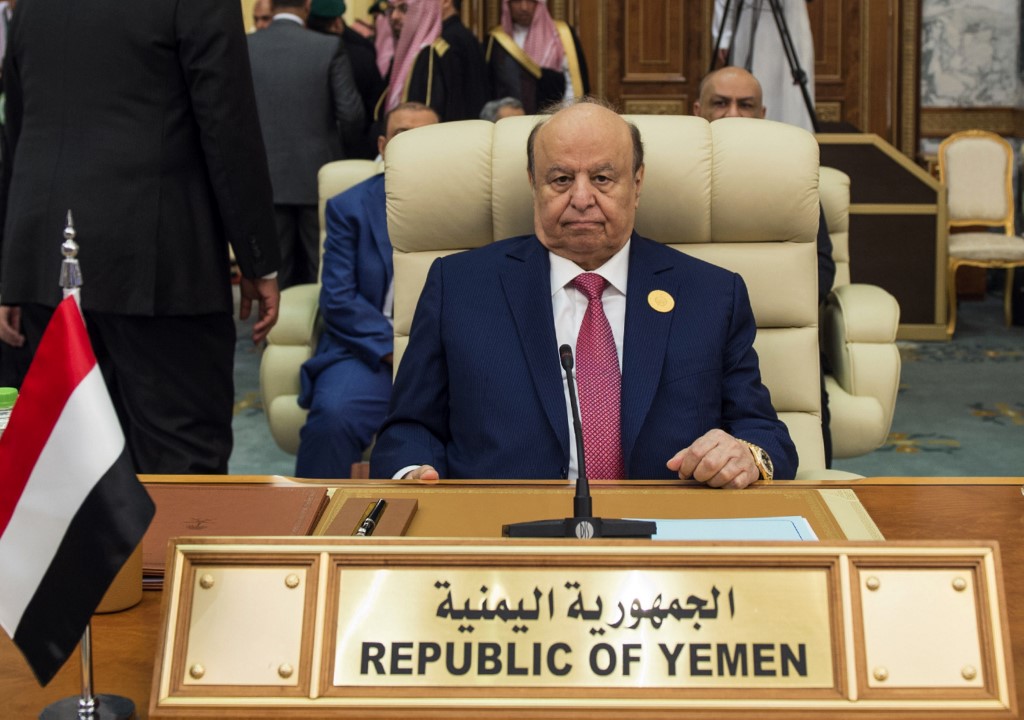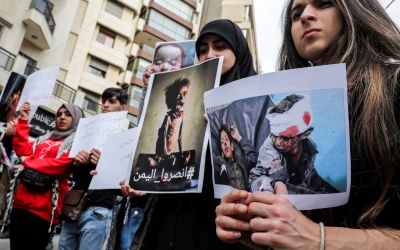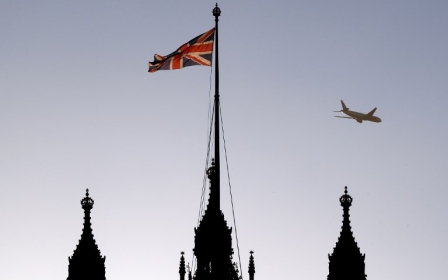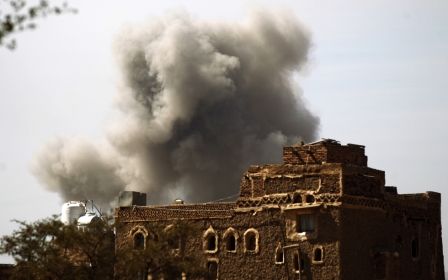Illegal arms transfers to Saudi Arabia: The tip of the iceberg of British lawbreaking over Yemen
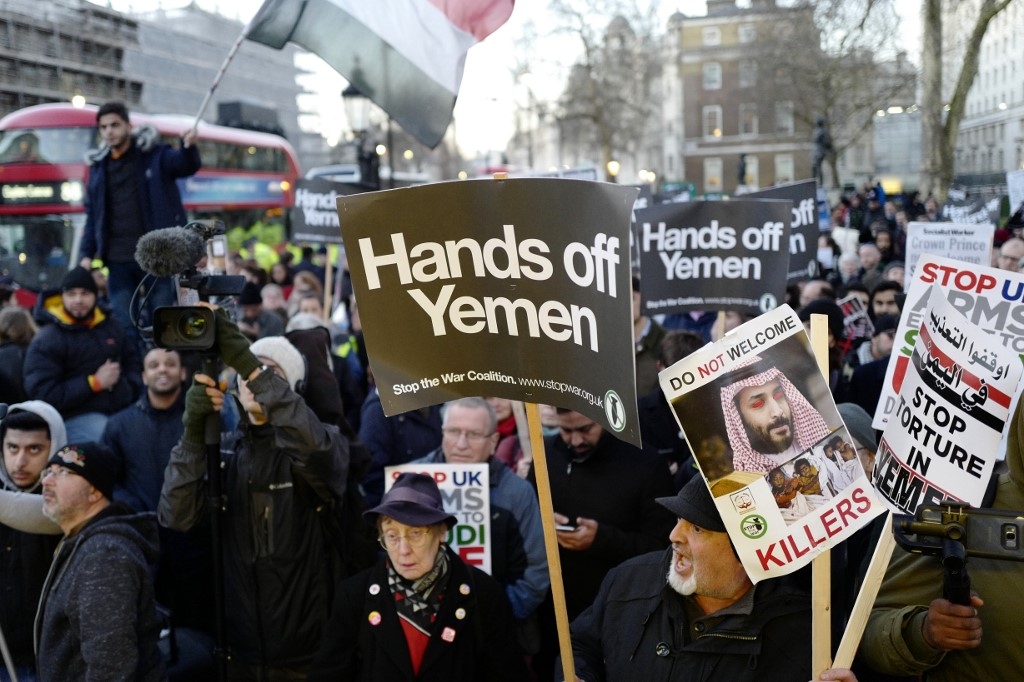
In a case brought by the Campaign Against Arms Trade, the UK Court of Appeal recently ruled that the continued licencing of British arms sales to Saudi Arabia was unlawful.
British law bans the licensing of arms if there is a “clear risk” they could be used in a serious violation of international humanitarian law; yet, Judge Terence Etherton noted that the government had “made no concluded assessments of whether the Saudi-led coalition had committed violations of international humanitarian law in the past, during the Yemen conflict, and made no attempt to do so”.
The court therefore ordered a review of the licences already granted, and International Trade Secretary Liam Fox promised that no new licences would be granted in the interim. The High Court had originally ruled in favour of the government in 2017.
Flagrant violations
That the UK government should be so flagrantly violating its own laws in order to facilitate the bombardment of Yemen should come as no surprise. A willingness to breach and undermine international law has been a hallmark of Britain’s proxy war against Yemen from the very outset.
New MEE newsletter: Jerusalem Dispatch
Sign up to get the latest insights and analysis on Israel-Palestine, alongside Turkey Unpacked and other MEE newsletters
The UK is a signatory to the international Arms Trade Treaty, which bans all arms exports used for “attacks directed against civilian objects or civilians protected as such”. Yet, the Saudi airforce - around half of which is supplied by British arms companies, maintained by an army of 6,300 British contractors stationed in Saudi Arabia - has been targeting “civilian objects” right from the start of the Yemen war in 2015.
It is not simply the way the war is being conducted that is unlawful; the war itself is probably illegal
Its use of the infamous “double-tap” technique - whereby bomb sites are hit a second time, to kill emergency responders - is well documented, accounting for the huge death toll from the bombing of a funeral in Sanaa in October 2016, for example. Hospitals, schools, markets and wedding parties have been regularly targeted, all justified by suspicions that “Houthi commanders” may have been present.
The Houthi stronghold of Saada, in particular, has been subjected to what Michael Knights of the Washington Institute for Near East Policy has called a “terror bombing” campaign: “You couldn’t have hit more civilian targets,” he said. All of this is well known and thoroughly documented; indeed, former Foreign Secretary Boris Johnson signed off on further arms transfers just a month after the funeral attack killed at least 140 civilians under the full glare of international media.
Fictional grounds
Yet, it is not simply the way the war is being conducted that is unlawful; the war itself is probably illegal. Under international law, as codified in Chapter 7 of the UN Charter, there are only two legal justifications for attacking another country. One is self-defence; the other is to tackle a threat to international peace and security, in which case the attack must be specifically authorised by the UN Security Council.
Neither of these two conditions pertain to Yemen, which had not attacked anyone else, nor been the subject of a UNSC resolution authorising military action against it. The legal case for the war on Yemen, then, rests entirely on fictional grounds: namely, the fiction that Abd Rabbuh Mansour Hadi is the country’s legitimate ruler.
On 25 March 2015, Hadi wrote to the UNSC requesting military support to crush the Houthi movement, which had taken control of much of Yemen. Under the “intervention by invitation” doctrine, a country’s leader is allowed, under international law, to call on foreign assistance to bolster its authority. By that point, however, Hadi was no longer the leader of Yemen, and therefore lacked the legal authority to request such assistance.
Hadi was elected - in a vote in which his was the only name on the ballot - for a strictly limited two-year term in 2012, to oversee a “transition” that never happened. His democratic mandate, then, shaky as it was, ended in 2014. He subsequently lost control of vast swaths of the country, including the capital Sanaa, and actually resigned in January 2015 (although he later tried to rescind this resignation).
Soon after making his plea to the UNSC, Hadi fled the country. Most of the populous areas of Yemen were now in the hands of the Houthis. Possessing neither a democratic mandate, nor control of state forces, nor even residency, his sole claim to authority in Yemen was “international recognition”: that is to say, the refusal of his backers to recognise reality.
Foreign delusions
To stake a claim to legitimacy purely on the delusions of your foreign supporters not only makes a mockery of the term, but risks seriously eroding the long-established right to self-determination. Any gang of powerful countries could declare someone the “leader” of a country, and then invade that country based on an “invitation” by their chosen puppet; indeed, we are now on the precipice of precisely this scenario in Venezuela.
As one academic study of the legality of the Yemen war concluded, “international recognition is a fickle barometer and inevitably introduces an element of subjectivity in the application of the legal framework”. It added that the invasion of Yemen “illustrates the indeterminacy of this doctrine and the risk of abuse … In the end, by failing to have the operation sanctioned by the UN Security Council, the intervening States … have undermined the primary role of the UN Security Council for the maintenance of international peace and security, and set a dangerous precedent.”
Britain is deeply culpable for this major erosion of international law, and by extension, the entire framework of international peace. Its failure to abide by its own laws on arms exports is but the tip of the iceberg.
The views expressed in this article belong to the author and do not necessarily reflect the editorial policy of Middle East Eye.
Middle East Eye delivers independent and unrivalled coverage and analysis of the Middle East, North Africa and beyond. To learn more about republishing this content and the associated fees, please fill out this form. More about MEE can be found here.



